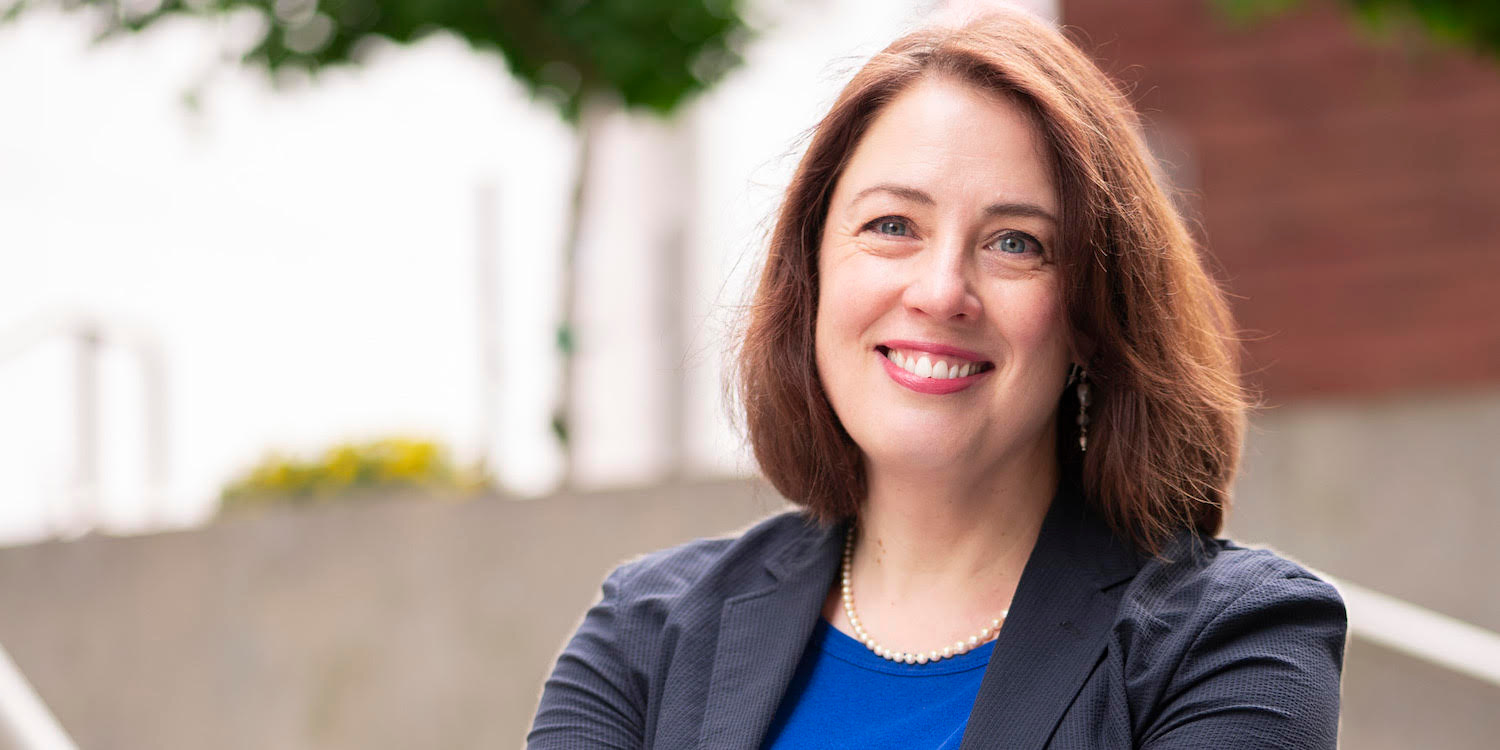When the Nova Scotia government announced plans in 2021 to implement a July fixed election date, Christina McKay volunteered to testify in front of the Law Amendments Committee to oppose the move, which would make Student Vote impossible.
With only a morning to prepare, the Halifax high school teacher gathered two of her students, who had recently completed a Student Vote program, to attest its value with the hope that the summer date would be reconsidered.
She and her grade 10 Canadian History class — ”a very articulate, very exciting group of kids” — had discussed the proposal in class and felt ready to speak their minds when CIVIX past-president Taylor Gunn put out a call to Nova Scotia teachers for feedback.
Testifying, she told the committee, “I’m a strong advocate for this kind of real-world learning. Students crave inclusion and know the difference between the real and the simulated.”
“Although we’re calling this a mock election, we’re getting all the candidates coming to our school,” she continued. “I’ve heard from my colleagues that the students were riveted by what the candidates had to say. That is a really difficult thing to recreate outside of an election.”
Ultimately, the effort was not successful and Nova Scotia implemented a fixed election date in July. McKay says that while the experience was disappointing, it was ultimately valuable and motivating for the students. “It was a competence-building activity and demystified the political process. It kind of made everybody mad, too.”
The students who testified, now in grade 12, still speak of it, and one of them went on to become head of the student council at Sacred Heart.
McKay, who has taught for 25 years, attributes her commitment to democracy education in part to her background. Her father was a CBC producer, so she grew up valuing dialogue around current events and cares deeply about media literacy.
Her husband is from Sweden and her children were born in Stockholm, where she spent 13 years as a teacher. “A lot of my teaching philosophy and practices are definitely influenced by my time teaching in Scandinavia,” she says. “There’s a very, very strong tradition of democracy there.”
Children and young adults are expected to be civically literate and to participate in their communities, she says, and this extends to the classroom. “It’s actually written into Swedish school law that you need to build a curricular plan with the consultation of your students. You’re meant to talk to them about ‘how do you want your learning to go?’”
I’m a strong advocate for [...] real-world learning. Students crave inclusion and know the difference between the real and the simulated.
When McKay returned to teach in Nova Scotia a decade ago, she brought these values with her. Even so, when she was first assigned to teach Civics, she worried the subject might be too dry. She quickly learned about CIVIX and was hooked with her first election, in 2015.
“The materials were so accessible. I discovered how engaging it was to use short films in the classroom and to bring MPs in to meet us,” she says. “I had a very digitally literate class that really ran with it and we decided to make an election promotion movie. I still love showing it. It’s so goofy, and they had so much fun doing it.”
McKay learned through the process, too. “The only way out of a course that is perceived to be dry, or something where students might be disengaged, has got to be through hands-on. It’s got to be inclusive.”
Civics has since been removed from her school’s curriculum, but McKay, who teaches History, Social Studies, Social Action, and English Language Arts, draws links to civic education wherever she can, through current events, debate and rhetoric skills, and discussions about ethics.
“I’m always trying to have a conversation about citizenship,” she says. “Today I was doing the pre-Columbian civilizations, and I’m asking questions about what makes a civilization? What do you need to be a group of people living together harmoniously? And how do we make sure that we’re building that all the time?”
With Student Vote, she advocates for the program with school administration to run it outside of a particular class or curriculum expectation. “I do it across the school now,” she says. “And I asked for student volunteers across all classes. Everybody participates.”
Heading up the program makes her something of a celebrity in the halls. “When I do an election, I get kids from all over the school going, ‘Oh, you’re the one. I really want to talk about politics with you.’ You know you’re doing something great when…”
McKay is motivated in her work by a desire to protect and promote democracy. She says students naturally want to be included in discussions of issues that matter and have a right to be. “It’s the role of the teacher, part of our job, to help students to communicate to self-advocate, to develop leadership skills, and to develop the critical thinking skills to participate in political processes.”
At a Glance
Name: Christina McKay
Location: Halifax, Nova Scotia
Grades Taught: 9-12
Subjects Taught: History, Social Action, AP English and Social Studies
Years Teaching: 25
Years Involved with CIVIX: 8
CIVIX programs used: Student Vote, Budget Consultation, Rep Day, CTRL-F, PoliTalks
Key Motivation: "I'm deeply worried about the state of democracy and general civic literacy and engagement. I'm in a privileged position to be able to do something about it."
